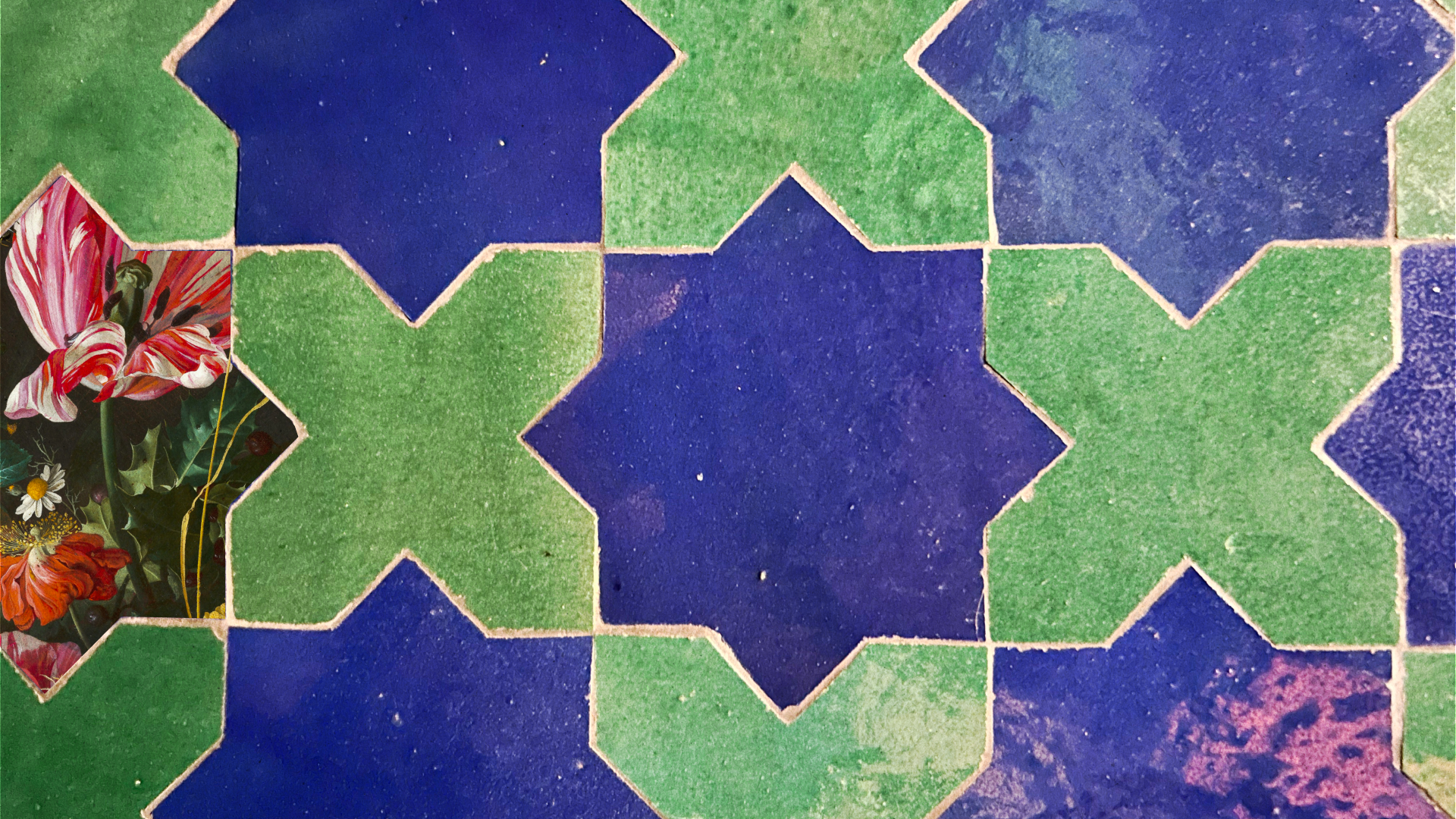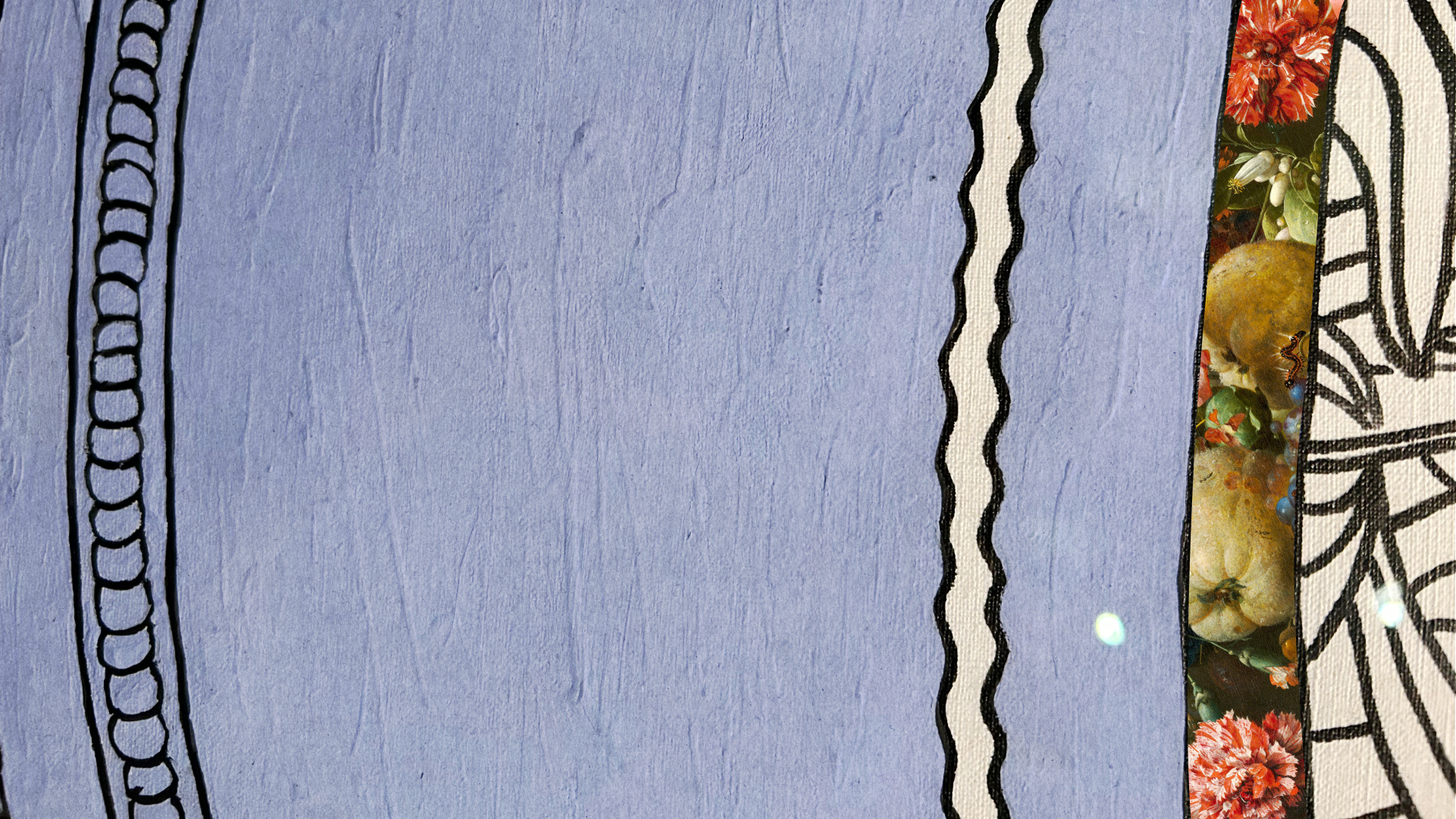Ugliness Is Coming, Beauty Is Here

YSL
The Saturday before the U.S. election I visited the Yves Saint Laurent Museum in Marrakech for the first time. Morocco had long been the late French fashion designer’s chosen second home, and along with his partner Pierre Bergé, he spent a considerable amount of time in their villas in Tangier and Marrakech.
In the latter city, the couple made an impulse property buy after their first visit in 1966, and in 1980 they acquired the Jardin Majorelle, the now famous lush garden and adjacent villa in Marrakech’s Palmeraie (Palm Grove) district, originally created by French designer Jacques Majorelle. The Museum Yves Saint Laurent Marrakech, as it is officially called, or MYSLM, since YSL loved initials, is situated across from the Jardin. It is an architectural masterpiece that embodies the couturier’s fine flamboyance, his curious grasp of various cultural influences, and his unabashed embrace of femininity.
The exhibition on display (“Les Fleurs de Yves Saint Laurent”) explored YSL’s penchant for flowers. Curators Olivier Saillard and Gaël Mamine staged some of his floral dresses and overlaid others with lilies, roses, wheat, and poppies, accompanied by the designer’s rough sketches and selected poems from the likes of Rainer Maria Rilke or Paul Éluard.
The thoughtfulness of the curation, the meticulousness of the dresses, the quiet conviction behind it all—it felt as though all of the world’s beauty was encapsulated in this building on this sunny morning in Marrakech. Beauty is always an act of care, its absence an act of carelessness. MYSLM was a gentle reminder of that and, as such, a profound moment of hope.
WTF
Three days later, I flew to Atlanta to vote. I hold dual American and German citizenship, and have been voting in U.S. elections for a decade now, but this is the first time my residency landed me in the swing state of Georgia. After years of casting my ballot in the blue state of California, rendered somewhat irrelevant due to the electoral college system, I was excited for my vote to finally matter. But in the end, it didn’t.
The electoral college is a bizarre anachronism, like so many things in the U.S. Whenever I arrive stateside these days, I’m shocked by the dismal condition of public infrastructure and the overall state of the union. It’s hard to find a country where material decay so overtly reflects moral decay, where the soullessness of a total consumerist market society is so aptly represented by its architecture. The U.S. may be the world’s biggest and most bullish economy, but the American standard of living is below par, plagued by a lack of civil safety, affordable housing, and affordable healthcare.
“Europeans think they live in hell but actually live in heaven. Americans think they live in heaven but actually live in hell.” The U.S. is, of course, more complex than this adage suggests. After fourteen years there (and counting), I’ve learned to appreciate the country’s vivid imagination, resilience, entrepreneurship, and communal spirit. And yet, I agree with Rebecca Solnit when she writes a day after the election: “Our mistake was to think we lived in a better country than we do.”
An unholy alliance of extreme commodification, extreme entertainment, and extreme individualism has canceled the social contract and turned America into a broken union, with its democratic institutions so unpopular that a populist promising to destroy them has earned a hitherto unthinkable democratic mandate.

USA, USA, USA!
I find it ironic that American liberals bemoan the rise of populism. America has always been a demagogue; it has always been populist. The stories it has been telling itself have always been outrageous fiction. Now “fake” has become an everyday reality. What rang untrue has become untrue. What seemed like a good lie has become a bad lie. The greatest show on earth has become the greatest shitshow.
America’s ugliness has always been there. Trump made it permissible. Half of Americans, putting their self-interest first, decided to re-elect a convicted felon and serial liar, fully aware of his xenophobia, unlawful incitements, cruelty, and venom. We know that neonazis, racists, and misogynists number among his supporters, but not every Trump voter is a fascist. If liberals are now hand-wringing and soul-searching, playing the blame game in endless post-mortems and rounds of “I told you so,” the question is not just why half of America decided to re-elect Trump. The question is also how the other half will respond to it: Will they retreat, fall in line, resist, rebuild?
This time the shock to the system cuts deeper. It’s not just a new coalition of voters that has emerged, it is a new world order in which constant violation is the norm: an autocracy of ugliness. To fight it, we must understand the four forces behind it.
1. The End of Reality
Reality, as we knew it, has ended. It wasn’t a catastrophic event; rather, it was a slow and grinding process. We’ve all fantasized about escaping reality at one time or another; now it seems to have quietly escaped us. In the absence of an objective reality, not only can we no longer tell the difference between human and artificial intelligence, real and unreal, and truth and fiction, we can also no longer find value in doing so.
In her book Doppelgänger, Naomi Klein observes how far-right and conspiracy-theory camps have successfully been filling this void with an “emotional reality.” They don’t need to get the facts right as long as they nail the feelings, she writes.
Jonathan Taplin, in The End of Reality, argues that the Silicon Valley titans are forcing an “alternate autocratic reality” on us from which there will be no escape. Trump is now their bedfellow.
We’re now witnessing the rise of a new techno-autocratic reality made by information technology. Information has always put people “in formation,” Yuval Noah Harari argues in his new book Nexus. He disputes what he calls the “material view on information”: “Information has no essential link to truth, and its role in history isn’t to represent a preexisting reality.” Further he writes: “While each individual human is typically interested in knowing the truth about themselves and the world, large [information] networks bind members and create order by relying on fictions and fantasies.” Trumpism and other populist movements are mastering this to perfection.
2. Transactionalism
Capitalism has failed to create meaning beyond an instrumentalist, utilitarian worldview that reduces individuals and their capacities to resources that are to be extracted and used at all costs. Worse, all aspects of our lives have now been infiltrated by a tit-for-tat-winner-takes-all-rat-race-to-the-bottom mentality that considers every human relationship a transaction.
Cue Elon Musk, richest man on earth, “buying” the election (and boosting Tesla’s stock as a result) not only through his Super PAC but also his one million dollars per day “lottery” in swing states. Cue betting markets like the Peter Thiel-backed Polymarket, which is not only predicting reality but shaping it. Or Crypto stocks—the ultimate transactionalization of relationships—banking on Trump and riding high after his win. And, of course, Trump himself, who will say and do whatever is needed for the ultimate victory of a better deal.
Transactionalism is a contemporary strain of cynicism that borders on nihilism. As Oscar Wilde put it: “A cynic is a man who knows the price of everything, and the value of nothing.”
3. Hyper-Masculinity
Transactionalism is the behavioral default of hyper-masculinity, and hyper-masculinity has become virtually synonymous with retribution against women, and against feminism in particular. The macho-megalomaniac aggression and patent misogyny of manosphere bros such as Joe Rogan, Jordan Peterson, Tucker Carlson, and Andy Ngo—not to mention JD Vance and Trump—represents the mainstreamization of lost manhood.
The idea of loss is key. “Loser” is a label reserved almost exclusively for men; you rarely hear the insult leveled at women. Hyper-masculinity is the hail mary of losers in defense mode; these are usually young, white men who feel as though they’re losing out in modern, progressive societies. Trump is clearly the greatest loser of all, a clown who legitimizes his own loserdom with every denigration, every “weave,” every below-the-belt attack. In last week’s New York Times, Elizabeth Spiers points to a 2021 study by psychologists Theresa Vescio and Nathaniel Schermerhorn that found that “hegemonic masculinity” had been the best predictor of whether someone considered Trump a good leader in 2016 and 2020, above sexism, racism, and even partisan affiliation.
Rebecca Solnit writes: “The Maga right (….) has succeeded in creating a more angry, aggressive form of masculinity, one more convinced that debasing and dominating women is essential to its identity, whether in porn or in Trump’s fantasizing aloud that Liz Cheney should face a firing squad and Harris face Mike Tyson.“
Indeed, Trump managed to both capture and fuel this sentiment. Softness is out. Hardcore is in. “Fuck Your Feelings,” some of the Trump stickers announced. Soft power is out. Hard power is in. Systems of ugliness—from Vladimir Putin to Viktor Orbán to Trump—will always dress up as a hyper-masculine force. Because they’re run by (men afraid to be) losers.
4. The Loneliness Machine
Digital platforms have turned rage into a machine that fuels division. The flipside of this division is loneliness. Loneliness is a modern phenomenon, and loneliness as a social epidemic is a digital malaise. The Internet has engineered and numbed loneliness at once. Social media has turned us into socially conscious, anti-social loners. Much has been written about the tech platforms’ incentive to drive us into dopamine addiction through algorithmic stimulation. Loneliness is a commercially worthy goal, too. What is a vicious cycle for the users is a virtuous cycle for the platforms. The lonelier the users, the more likely they’ll turn to social media for company, for a sense of belonging.
This tactic also plays out well for autocrats. Lonely users are lonely citizens, often men, even more often young men, who are drawn to those who promise a sense of identity, of “being someone,” by demonizing, and in the worst case, dehumanizing “the other.” If there is no other, however, it becomes harder and harder to leave your echo-chamber and to connect with others. Loneliness becomes a no-feedback loop that lulls men into a false sense of belonging when in fact the digital overlords or fascist leaders they follow offer nothing but nothingness: a nihilistic worldview that rejects any possibility of kindness, of ulterior motives, of transcendence, or beauty.

Beauty Dies First…
Democracy doesn’t die in darkness, as the self-important motto of the Washington Post goes. Owner Jeff Bezos’ refusal to endorse Kamala Harris made it that much phonier. Democracy dies because small rituals and informal practices are erased, step by step, through micro-transgressions, changes in protocol (like the Trump team delaying the transition process). This is the conclusion Steven Levitsky and Daniel Ziblatt draw in their seminal work, How Democracies Die (2018). “Democracies don’t die in darkness, sometimes they die with the lights on, by people elected through democratic means,” they write.
If hope dies last, as the saying goes, beauty dies first. Whenever there’s an attack on our humanity—our decency as human beings, our human rights—on the thin and fragile mantle of civilization, beauty is among the first targets. The little extra, the care, the love, the finesse, the meticulousness—they are all anathema to movements designed to dehumanize. Whether it’s burning books, banning poetry, or stigmatizing some art as “alienated,” the corrosion of language in written or oral form (just note the increasingly common cursing, not just on manosphere podcasts), bullying, or micro-aggressions—the assaults on beauty can be imperceptible or blunt, small or big, but each of them erodes the fabric of civility, the fabric of a liberal society.
Trump is not only the guru of zero-sum, he’s also the guru of zero quality. And quality is just another word for beauty—the idea that how we do things matters. It’s the diversity and femininity I saw in Marrakech in YSL’s work. The elegance, which, as the designer once said, is always “an elegance of the heart.”
…and Lasts Longest
There is still hope. Not only is there beauty in precision, but beauty must also be precise. Trump and his cronies are slippery, lazy, all over the place.
This is our chance.
With the House of Beautiful Business, we will keep fighting for beauty in and through today’s business and workplaces, and we will do it more sharply than ever before. Make no mistake: This is a political project. There is nothing fluffy or feel-good about beauty. It is the seams of the fabric of civilization. Without beauty, nothing is anything.
Business, on the other hand, is key because it is the most powerful operating system of our times. Capitalism is our starting point, even if it may not be our final destination. In light of the coming ugliness—the unholy axis of hypermasculinity, AI, and misinformation—a new system is urgently needed, but it won’t happen overnight.
Meanwhile, we will promote moral imagination as the antidote to transactionalism.
We will promote femininity as the antidote to hyper-masculinity.
We will promote intimacy as the antidote to loneliness.
In The World of Yesterday (1942), a clairvoyant portrayal of Europe’s sleepwalk into the horrors of war, the Austrian novelist Stefan Zweig observed: “It is difficult to rid yourself, in only a few weeks, of thirty or forty years of private belief that the world is a good place. With our rooted ideas of justice, we believed in the existence of a German, a European, an international conscience, and we were convinced that a certain degree of inhumanity is sure to self-destruct in the face of humane standards.”
We know better now.
Zweig also wrote: “It is only delusion, and not knowledge, that bestows happiness.”
The only way to beat populists is to become more popular than them. We must create a new story, a new alternative reality. We must move beyond enlightenment, beyond the idea of an objective truth, beyond the notion that democracies are held together by educated elites, reason, and facts. We must create the more extravagant fantasies, the more enchanting fictions, the more persuasive delusions. We have no choice but to win the information wars. We must have the better propaganda and the smarter algorithms to spread it.
We’re at the end of a cycle. A new one is beginning. At least the light we produce next won’t cast shadows for a while.
Tim Leberecht

Open House: Breaking Bias

Shock and Awe

Writing in a Crowded World

On the Beauty of Distraction

I Don’t Resonate with You

